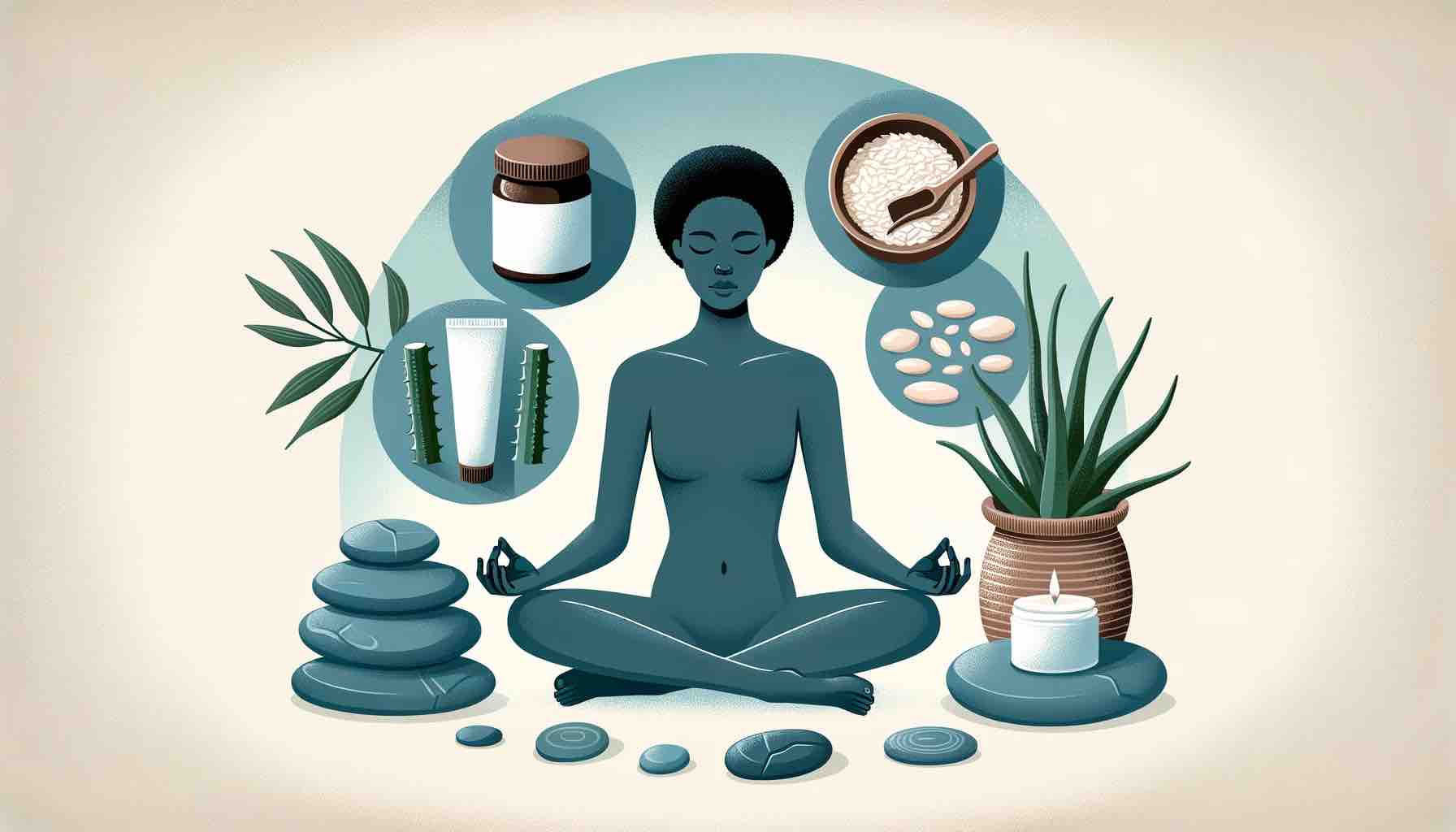
Introduction:
Eczema, a skin condition that manifests as dry, itchy patches, can be particularly challenging for individuals with black or dark skin. The nuances of eczema in melanin-rich skin are often overlooked, leading to misdiagnosis and ineffective treatments. Dr. Simi Adedeji, a dermatologist specializing in the skin of color, offers a wealth of knowledge on managing eczema for those who may not find traditional advice applicable.
Understanding Eczema in Skin of Color:
Eczema, or atopic dermatitis, affects the skin’s barrier function, leading to moisture loss and vulnerability to irritants. In black and dark skin, eczema may present as darker brown, purple, or grey patches, which can be mistaken for other skin conditions. This difference in appearance is crucial for accurate diagnosis and treatment.
Challenges Unique to Black and Dark Skin:
One of the primary challenges in treating eczema in darker skin is the under-recognition of redness due to the skin’s pigmentation. This often results in a delayed or missed diagnosis. Additionally, post-inflammatory hyperpigmentation is a common aftermath of eczema flares in skin of color, which can persist long after the eczema has been treated.
Strategies for Managing Eczema:
Dr. Simi Adedeji’s video provides a comprehensive approach to managing eczema, emphasizing the importance of maintaining the skin’s moisture, avoiding known irritants, and using treatments like topical steroids judiciously to prevent thinning of the skin.
For a detailed explanation and visual demonstration of these strategies, watch Dr. Adedeji’s informative video:
Product Selection for Eczema-Prone Skin:
Choosing the right products is essential for managing eczema. Look for creams and ointments that are rich in ceramides and free from fragrances and dyes. For a curated list of dermatologist-recommended products, visit our article on Eczema Management: A Dermatologist’s Perspective.
Personalized Skincare Routines:
A tailored skincare routine that addresses individual concerns is vital for managing eczema. Dr. Adedeji recommends gentle cleansing, liberal moisturizing, and the careful application of medicated creams as prescribed.
Addressing Complications:
Hyperpigmentation can be a distressing complication of eczema for those with darker skin. To minimize this risk, it’s important to control eczema flare-ups promptly and to use sun protection daily. For more information on hyperpigmentation and eczema, read our in-depth article: Eczema and Dermatitis: Causes and Coping Mechanisms.
Conclusion:
Effective eczema management in black and dark skin requires a nuanced understanding of the condition and a personalized approach to treatment. By incorporating the expert advice of dermatologists like Dr. Simi Adedeji and utilizing appropriate skincare products, individuals with skin of color can achieve significant relief from eczema symptoms.
For additional insights into soothing eczema and preventing flare-ups, explore our comprehensive guide: 10 Dermatologist-Approved Tips to Soothe Eczema.
Additional Resources:
- Healing Eczema Naturally
- Exploring Eucrisa: An Eczema Solution
- Foods to Avoid for Eczema: Insights from Dr. Alex Hui
Call to Action:
For those seeking personalized dermatological advice, consider reaching out to Dr. Simi Adedeji. Her expertise in skin of color can provide tailored recommendations to manage your eczema effectively. Connect with her through her Instagram or visit her website for more resources and support.
FAQs
- What are the key differences in eczema symptoms between black or dark skin and lighter skin tones? Eczema can appear as dark brown, purple, or grey patches in black or dark skin, which may lead to challenges in diagnosis and treatment compared to the red, inflamed appearance it often has in lighter skin.
- How can I tell if the dark patches on my skin are due to eczema or another condition? A dermatologist can provide a definitive diagnosis, but eczema patches are typically itchy, dry, and may have a textured feel due to scratching or lichenification.
- What steps should I take to manage eczema if I have black or dark skin? Consistent moisturizing, avoiding irritants, and following a skincare routine tailored to your skin’s needs are essential. It’s also important to consult with a dermatologist who understands the nuances of eczema in skin of color.
- Can over-the-counter products effectively treat eczema in darker skin tones? Many OTC products can be effective, especially those designed for sensitive skin. However, for best results, products should be chosen based on a dermatologist’s recommendation to address your specific skin concerns.
- What are some common triggers that may cause eczema flare-ups in black or dark skin? Triggers can include harsh soaps, certain fabrics, allergens, stress, and climate changes. Identifying and avoiding your personal triggers is a critical step in managing eczema.
- How does hyperpigmentation affect eczema treatment in darker skin? Hyperpigmentation can make it harder to spot inflammation and may require treatments that address both the eczema and the darkened areas of the skin.
- Are there any lifestyle changes I can make to help control my eczema? Yes, maintaining a healthy diet, reducing stress, and wearing non-irritating fabrics can all contribute to better eczema control.
- What should I do if I notice a sudden worsening of my eczema symptoms? If you experience a sudden or severe flare-up, it’s important to consult with a dermatologist to adjust your treatment plan and address the flare-up promptly.
- How can I prevent eczema scars on black or dark skin? Preventing scars involves managing your eczema proactively, avoiding scratching, and seeking professional advice on treatments that promote healing without leaving marks.
- What professional treatments are available for eczema that has not responded to home care? Dermatologists may offer prescription medications, light therapy, or recommend specific dermatological procedures to help manage resistant eczema cases.
Blog Tags for the Post
eczema care, skin of color dermatology, managing eczema, eczema treatment, hyperpigmentation, skincare routine, sensitive skin products, dermatologist advice, eczema triggers, skin barrier protection, moisturizing tips, eczema complications













